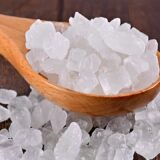Understanding Ayurveda’s 7 Dhatus: A Comprehensive Introduction
Ayurveda, the ancient Indian system of medicine, holds a holistic approach to health and well-being. According to Ayurvedic principles, the human body is composed of seven distinct tissue layers known as Dhatus. 
These Dhatus play a vital role in maintaining overall health and are interconnected to create a harmonious balance within the body. In this article, we will delve deeper into the concept of Dhatus, their functions, imbalances, and how to nurture them for optimal health.
The Concept of Dhatus in Ayurveda
Dhatus are the seven tissue layers in Ayurveda, and they are responsible for nourishing and maintaining the body. The term “Dhatu” translates to “support” or “that which holds,” indicating their fundamental role in providing strength and structure to different organs and systems.
The Seven Dhatus and Their Functions
1. Rasa Dhatu (Plasma)
In Ayurveda, Rasa Dhatu refers to the plasma or fluid component of the blood. It is a vital element in the body that nourishes tissues, and supports the immune system.
And serves as the primary source of nutrition for all other Dhatus (tissues). Let’s explore the functions of Rasa Dhatu, the consequences of its imbalance, and how to maintain its health.
The function of Rasa Dhatu
Rasa Dhatu plays a crucial role in maintaining overall health and well-being. It is responsible for transporting nutrients, hormones, and other essential substances throughout the body.
As the fluid component of the blood, Rasa Dhatu carries nutrients derived from the digestive process to all the cells and tissues, providing them with the necessary nourishment for optimal functioning.
It also aids in flushing out waste products and toxins from the body, supporting detoxification and promoting a healthy internal environment.
Furthermore, Rasa Dhatu contributes to the body’s immune system, as it carries immune cells and antibodies, helping to defend against infections and diseases.
Imbalance and Symptoms
An imbalance in Rasa Dhatu can lead to various health issues, particularly concerning digestion, immunity, and energy levels.
Digestive issues such as indigestion, bloating, or irregular bowel movements may arise when Rasa Dhatu is impaired, leading to inadequate nutrient absorption and assimilation.
Weak immunity is another common consequence, making individuals more susceptible to infections and illnesses.
Moreover, imbalanced Rasa Dhatu can result in fatigue and reduced energy levels, as the body may not receive the essential nutrition required for optimal functioning.
How to Maintain Rasa Dhatu?
Ayurveda offers valuable insights into maintaining the health of Rasa Dhatu and promoting overall well-being. Here are some essential tips:
1. Balanced Diet: Consume a balanced diet that includes fresh and nutritious foods, such as fruits, vegetables, whole grains, lean proteins, and healthy fats. Proper digestion and nutrient absorption are crucial for the health of Rasa Dhatu.
2. Hydration: Stay well-hydrated by drinking an adequate amount of water throughout the day. Hydration supports the fluidity and functionality of Rasa Dhatu.
3. Proper Digestion: Eat mindfully and avoid overeating. Include digestive spices like ginger, cumin, and fennel in your meals to support healthy digestion.
4. Stress Management: Chronic stress can impact digestion and the immune system. Practice relaxation techniques like meditation, yoga, or deep breathing to manage stress effectively.
5. Adequate Rest: Ensure you get sufficient restful sleep as it is essential for the body’s rejuvenation and the health of Rasa Dhatu.
6. Herbal Support: Ayurvedic herbs like Amla and Tulsi are known for their immune-boosting properties and can be included in your routine after consulting an Ayurvedic practitioner.
2. Rakta Dhatu (Blood)
In the ancient healing system of Ayurveda, Rakta Dhatu represents the vital fluid known as the blood that circulates throughout the body.
Blood plays a crucial role in sustaining life by carrying oxygen, nutrients, and hormones to various tissues and organs while removing waste products and carbon dioxide.
Let’s explore the functions of Rakta Dhatu, the consequences of its imbalance, and how to maintain its health.
The Function of Rakta Dhatu
Rakta Dhatu is responsible for several essential functions in the body. One of its primary roles is to transport oxygen from the lungs to all the cells, enabling cellular respiration and energy production.
It also delivers vital nutrients, hormones, and immune cells to different parts of the body, supporting overall health and well-being.
Moreover, Rakta Dhatu aids in maintaining body temperature by distributing heat evenly throughout the body.
Additionally, it plays a significant role in regulating the body’s pH balance, ensuring that the blood remains within the optimal pH range for proper cellular function.
Imbalance and Symptoms
An imbalance in Rakta Dhatu can lead to various health issues, particularly concerning the circulatory system and skin. Skin disorders, such as rashes, eczema, or psoriasis, may arise due to impurities or toxins in the blood.
Inflammation is another common consequence of imbalanced Rakta Dhatu, as it can result in various inflammatory conditions in the body.
Impaired circulation may lead to conditions like cold hands and feet, dizziness, or even cardiovascular problems. Additionally, blood disorders like anemia or excessive blood clotting can occur due to Rakta Dhatu imbalance.
How to Maintain Rakta Dhatu?
Ayurveda offers valuable insights into maintaining the health of Rakta Dhatu and promoting a healthy circulatory system. Here are some essential tips:
1. Healthy Diet: Consume a balanced diet that includes fresh fruits, vegetables, whole grains, lean proteins, and healthy fats to provide essential nutrients to the blood.
2. Hydration: Stay well-hydrated to maintain blood volume and support overall circulatory function.
3. Regular Exercise: Engage in regular physical activity to promote cardiovascular health, improve blood circulation, and maintain a healthy weight.
4. Herbal Support: Ayurvedic herbs like Manjistha and Neem are known for their blood-purifying properties and can be used under expert guidance.
5. Stress Management: Chronic stress can impact blood circulation and overall health. Practice relaxation techniques like meditation, yoga, or deep breathing to manage stress effectively.
6. Avoid Smoking and Alcohol: Smoking and excessive alcohol consumption can negatively affect blood vessels and circulation.
7. Adequate Rest: Ensure you get sufficient restful sleep as it supports overall healing and rejuvenation.
3. Mamsa Dhatu (Muscle)
In Ayurveda, Mamsa Dhatu refers to the muscle tissues that play a vital role in supporting the body and facilitating movement.
Muscles are essential for various bodily functions, and their health is crucial for overall strength and well-being. Let’s explore the functions of Mamsa Dhatu, the consequences of its imbalance, and how to maintain its health.
The Function of Mamsa Dhatu
Mamsa Dhatu is responsible for providing support and movement to the skeletal system. Muscles are attached to bones and work together to allow the body to move, maintain posture, and carry out various activities.
Apart from enabling movement, Mamsa Dhatu also provides stability to the joints and helps protect internal organs.
Additionally, it contributes to overall body strength, allowing individuals to perform daily tasks and physical activities effectively.
Imbalance and Symptoms
An imbalance in Mamsa Dhatu can lead to various muscular issues and impact mobility. Muscle cramps or spasms are common symptoms of imbalanced Mamsa Dhatu.
These painful contractions can occur due to dehydration, nutrient deficiencies, or overuse of muscles. Muscle weakness is another consequence, making it challenging to perform routine tasks or engage in physical activities.
In severe cases, muscle wasting, known as muscle atrophy, can occur, where muscles start to shrink and lose mass, leading to a significant loss of strength and functionality.
How to Maintain Mamsa Dhatu?
Ayurveda emphasizes the significance of maintaining the health of Mamsa Dhatu to promote overall physical strength and mobility. Here are some essential tips:
1. Protein-Rich Diet: Consume an adequate amount of protein from sources like lean meats, fish, legumes, nuts, and dairy products. Protein is essential for muscle repair and growth.
2. Hydration: Stay well-hydrated as water is necessary for proper muscle function and to prevent cramps and spasms.
3. Regular Exercise: Engage in regular physical activity that includes a combination of cardiovascular exercises, strength training, and flexibility exercises to promote muscle health and overall fitness.
4. Rest and Recovery: Allow sufficient rest between exercise sessions to give muscles time to recover and repair.
5. Avoid Overuse: Avoid excessive strain or overuse of muscles to prevent muscle fatigue and potential injuries.
6. Warm-up and Cool-down: Always warm up before exercising and cool down afterward to reduce the risk of muscle strain and improve flexibility.
7. Herbal Support: Ayurvedic herbs like Ashwagandha and Shatavari are known for their muscle-nourishing properties and can be included in your routine after consulting an Ayurvedic practitioner.
4. Meda Dhatu (Fat)
In the ancient healing system of Ayurveda, Meda Dhatu refers to adipose tissue or fat present in the body. It plays a vital role in maintaining overall health and well-being.
Meda Dhatu acts as a reservoir of energy, providing insulation and cushioning to vital organs, and contributing to various physiological functions. Let’s explore its functions, the consequences of its imbalance, and how to maintain its health.
The Function of Meda Dhatu
Meda Dhatu serves several essential functions in the body. One of its primary roles is to act as a storage site for energy. The body stores excess calories in the form of fat, and when needed, it can be converted back into energy to fuel various activities.
Moreover, Meda Dhatu provides cushioning and protection to organs, helping to maintain their structural integrity and prevent damage from external impacts.
Additionally, Meda Dhatu plays a role in supporting the nervous system and enhancing brain function, as some fatty acids are essential for cognitive health.
Imbalance and Symptoms
An imbalance in Meda Dhatu can lead to various health issues, particularly related to weight and metabolism. Excessive accumulation of fat can result in obesity, which is a risk factor for numerous health conditions such as cardiovascular diseases, diabetes, and joint problems.
Moreover, imbalanced Meda Dhatu can lead to cholesterol issues, where there is an abnormal buildup of cholesterol in the blood, increasing the risk of heart-related problems.
Additionally, a sluggish metabolism can be a consequence of impaired Meda Dhatu, making it difficult for the body to efficiently convert and utilize energy.
How to Maintain Meda Dhatu?
Ayurveda offers valuable insights into maintaining the health of Meda Dhatu and achieving a balanced body weight. Here are some essential tips:
1. Balanced Diet: Consume a balanced diet that includes a variety of nutrient-dense foods, such as whole grains, fruits, vegetables, lean proteins, and healthy fats. Avoid excessive consumption of unhealthy fats and processed foods.
2. Portion Control: Pay attention to portion sizes and avoid overeating. Eating mindfully and stopping when you feel full can help manage calorie intake.
3. Regular Exercise: Engage in regular physical activity to burn calories, improve metabolism, and maintain a healthy body weight.
4. Stress Management: Chronic stress can contribute to weight gain and imbalanced Meda Dhatu. Practice relaxation techniques like meditation, yoga, or deep breathing to manage stress effectively.
5. Herbal Support: Ayurvedic herbs like Triphala and Guggulu are known to support healthy fat metabolism and can be incorporated into your routine after consulting an Ayurvedic practitioner.
6. Adequate Sleep: Ensure you get sufficient and restful sleep as it is crucial for overall metabolic health.
7. Hydration: Stay adequately hydrated as it supports various bodily functions, including metabolism.
5. Asthi Dhatu (Bone)
Asthi Dhatu is a fundamental concept in Ayurveda, the ancient Indian system of medicine. It refers to the bones and teeth, which are integral components of the body’s structural framework.
Asthi Dhatu provides essential support, giving shape and stability to the body while also safeguarding vital organs. Let’s delve into its functions, the consequences of its imbalance, and how to maintain its health.
The Function of Asthi Dhatu
The primary function of Asthi Dhatu is to facilitate bone formation and maintain mineral storage in the body. Bones serve as the scaffolding that holds our body upright, and they play a crucial role in protecting vital organs like the brain, heart, and lungs.
Asthi Dhatu supports the body’s overall structure, allowing us to move, perform daily activities, and maintain our posture.
Moreover, it acts as a reservoir for essential minerals like calcium and phosphorus, which are released into the bloodstream when needed to maintain mineral balance and support various bodily functions.
Imbalance and Symptoms
An imbalance in Asthi Dhatu can lead to several health issues related to bone and joint health. Weak bones, a condition known as osteoporosis, can result from an inadequate supply of minerals, particularly calcium, to the bones.
This makes the bones brittle and prone to fractures. Joint pain and stiffness may also arise due to poor bone health and reduced lubrication in the joints.
Additionally, imbalanced Asthi Dhatu can contribute to skeletal disorders like arthritis, which affects the joints’ integrity and causes discomfort and reduced mobility.
How to Maintain Asthi Dhatu?
Ayurveda offers valuable insights into maintaining the health of Asthi Dhatu and supporting bone strength. Here are some essential tips:
1. Calcium-Rich Diet: Consume foods rich in calcium, such as dairy products, leafy greens, almonds, and sesame seeds, to promote bone health and mineral storage.
2. Vitamin D: Ensure adequate intake of vitamin D through sunlight exposure or supplements, as it is crucial for calcium absorption and bone formation.
3. Regular Exercise: Engage in weight-bearing exercises, such as walking, running, or dancing, to promote bone density and strength.
4. Herbal Support: Certain Ayurvedic herbs like Shatavari and Guggulu are known for their bone-strengthening properties and can be used under expert guidance.
5. Maintain Healthy Digestion: Good digestion is essential for proper nutrient absorption, including minerals required for bone health. Incorporate fiber-rich foods and consider mindful eating habits to support digestion.
6. Avoid Excessive Caffeine and Alcohol: High caffeine and alcohol consumption can interfere with calcium absorption and affect bone health negatively.
7. Adequate Rest: Get sufficient rest and sleep, as it supports bone repair and rejuvenation.
6. Majja Dhatu (Marrow)
In the ancient healing system of Ayurveda, Majja Dhatu holds significant importance. It refers to the essential components of bone marrow, spinal cord, and nerve tissues.
Majja Dhatu plays a pivotal role in nourishing and supporting the nervous system, which is vital for overall well-being and optimal bodily functions.
Let’s explore its functions, the consequences of its imbalance, and how to maintain its health.
The Function of Majja Dhatu
Majja Dhatu is responsible for maintaining bone health and supporting nerve function. It plays a crucial role in producing bone marrow, the soft, fatty substance found within bones, which is essential for blood cell formation.
Furthermore, Majja Dhatu is intricately linked to the health of the nervous system, including the spinal cord and nerve tissues. It nourishes and protects these vital components, ensuring smooth communication between the brain and the rest of the body.
Proper Majja Dhatu functioning is necessary for maintaining strong bones, supporting nerve impulses, and promoting overall neurological health.
Imbalance and Symptoms
An imbalance in Majja Dhatu can lead to various health issues, particularly concerning the nervous system. This imbalance may manifest as nerve disorders, causing sensations like tingling, numbness, or even weakness in the limbs.
Memory issues and difficulty in cognitive functions may also arise due to compromised nerve health. Moreover, imbalanced Majja Dhatu can lead to bone-related problems, such as weak or brittle bones, making individuals more susceptible to fractures and joint issues.
How to Maintain Majja Dhatu?
Ayurveda emphasizes the significance of maintaining the balance of Majja Dhatu to ensure optimal bone health and nerve function. Here are some essential tips:
1. Nutritious Diet: Consume a well-balanced diet rich in calcium, vitamin D, and other essential nutrients that promote bone health. Dairy products, leafy greens, nuts, and seeds are excellent sources of these nutrients.
2. Adequate Sunlight: Exposure to sunlight helps the body synthesize vitamin D, which is crucial for calcium absorption and bone health.
3. Regular Exercise: Engage in weight-bearing exercises, such as walking, jogging, or resistance training, to strengthen bones and improve overall bone density.
4. Nervine Tonics: Ayurvedic herbs like Ashwagandha and Brahmi are known as nervine tonics and can be beneficial for nerve health when used under proper guidance.
5. Stress Management: Chronic stress can impact nerve health. Practicing relaxation techniques like meditation, yoga, or mindfulness can help alleviate stress and support nervous system function.
6. Adequate Rest: Ensure you get enough restful sleep as it is essential for overall nervous system repair and rejuvenation.
7. Herbal Supplements: Ayurvedic practitioners may recommend specific herbal supplements to support Majja Dhatu health based on individual needs.
7. Shukra Dhatu (Reproductive Tissue)
Shukra Dhatu is a fundamental concept in Ayurveda, the ancient Indian system of medicine. It is considered to be the essential reproductive tissue responsible for fertility and sexual function.
According to Ayurvedic principles, Shukra Dhatu is crucial for the overall well-being and procreative abilities of an individual. Let’s delve deeper into its functions, the consequences of its imbalance, and how to maintain its health.
The Function of Shukra Dhatu
Shukra Dhatu plays a vital role in healthy reproduction and the overall vitality of the body. It is believed to be the essence of all bodily tissues, and its proper functioning is essential for the conception and development of a healthy offspring.
Shukra Dhatu is responsible for the production of healthy ova in women and sperm in men. Additionally, it influences the quality and quantity of reproductive fluids involved in the process of fertilization.
Moreover, Shukra Dhatu contributes to sexual vigor and vitality, promoting a satisfying and fulfilling sexual life.
Imbalance and Symptoms
An imbalance in Shukra Dhatu can lead to various reproductive problems and hormonal imbalances. In women, this may manifest as irregular menstrual cycles, difficulty in conceiving, or recurrent miscarriages.
Men may experience reduced sperm count, poor sperm motility, erectile dysfunction, or decreased libido. Hormonal imbalances associated with Shukra Dhatu disruption can also lead to emotional disturbances, mood swings, and even affect overall energy levels.
How to Maintain Shukra Dhatu?
To maintain the health of Shukra Dhatu and support its proper functioning, Ayurveda emphasizes the importance of a balanced lifestyle and dietary habits. Here are some essential tips:
1. Nutritious Diet: Consume a nourishing diet that includes a variety of fresh fruits, vegetables, whole grains, lean proteins, and healthy fats. Specific foods like almonds, ghee (clarified butter), dates, and saffron are believed to be beneficial for Shukra Dhatu health.
2. Adequate Hydration: Drink plenty of water throughout the day to support overall body functions, including reproductive health.
3. Stress Management: Chronic stress can negatively impact Shukra Dhatu. Engage in relaxation techniques like meditation, yoga, or deep breathing exercises to reduce stress levels.
4. Regular Exercise: Incorporate moderate physical activity into your routine as it enhances circulation, metabolism, and hormonal balance, all of which are essential for Shukra Dhatu health.
5. Avoid Harmful Habits: Minimize or avoid alcohol consumption, smoking, and drug use, as they can have detrimental effects on reproductive health.
6. Adequate Rest: Ensure you get enough sleep and maintain a regular sleep schedule to promote overall well-being and hormonal balance.
7. Herbal Support: Ayurvedic herbs such as Ashwagandha, Shatavari, and Gokshura are known to support reproductive health and can be included in your daily regimen after consulting an Ayurvedic practitioner.
Benefits of Balancing Dhatus
Balancing Dhatus in the body offers numerous benefits that contribute to overall health and well-being. Ayurveda, with its holistic approach, emphasizes the significance of maintaining the equilibrium of these tissue layers. Here are some of the key benefits of balancing Dhatus:
1. Enhanced Immunity: When Dhatus are in balance, particularly Rasa Dhatu (plasma), the body’s immune system functions optimally. It helps defend against infections, viruses, and diseases, keeping the body strong and resilient.
2. Improved Digestion: A balanced Rasa Dhatu supports proper digestion and assimilation of nutrients, ensuring that the body receives essential elements for nourishment.
3. Healthy Blood Circulation: Balanced Rakta Dhatu (blood) promotes smooth circulation, delivering oxygen and nutrients to all cells and tissues, and eliminating waste efficiently.
4. Strengthened Muscles: Balanced Mamsa Dhatu (muscle tissue) provides strength and support to the skeletal system, enabling better movement and posture.
5. Optimal Brain Function: Meda Dhatu (fat) in balance nourishes the nervous system and supports cognitive abilities, including memory and concentration.
6. Healthy Bones and Teeth: A well-maintained Asthi Dhatu (bone) contributes to strong bones and teeth, protecting the body’s vital organs and providing structural integrity.
7. Nervous System Support: Majja Dhatu (marrow) in balance nourishes the nerves and spinal cord, ensuring smooth communication between the brain and body.
8. Reproductive Health: A balanced Shukra Dhatu (reproductive tissue) supports fertility and enhances sexual health and vitality.
9. Emotional Well-Being: Balancing Dhatus positively influences mental and emotional states, promoting a sense of contentment, joy, and overall emotional balance.
10. Vitality and Energy: Harmonious Dhatus result in increased vitality and sustained energy levels throughout the day.
11. Prevention of Health Disorders: By nurturing Dhatus, Ayurveda helps prevent various health issues before they arise, fostering long-term well-being.
12. Anti-Aging Benefits: Balanced Dhatus offer remarkable anti-aging benefits, as they contribute to slowing down the aging process. This balance helps reduce premature aging signs and fosters a state of healthy and graceful aging.
13. Resilience to Stress: A well-balanced body with harmonious Dhatus copes better with stress and adapts more effectively to challenging situations.
14. Restful Sleep: Restful sleep becomes attainable when the Dhatus are in harmony. This state of balance improves the quality of sleep, enabling the body to undergo rejuvenation and healing during the night.
15. Holistic Health: Holistic health is achieved through the balance of Dhatus, which brings a profound sense of harmony and equilibrium to the entire body-mind system. This process promotes overall well-being and a state of well-rounded and complete wellness.
FAQs
Q1: Can imbalanced Dhatus be restored to their optimal state?
Yes, imbalanced Dhatus can be restored through Ayurvedic treatments, lifestyle modifications, and proper nutrition.
Q2: Are there any side effects of Ayurvedic remedies for balancing Dhatus?
Ayurvedic remedies are generally safe when prescribed by qualified practitioners and taken in the recommended dosages. However, individual responses may vary, so it is essential to consult an Ayurvedic expert.
Q3: Can practicing yoga alone balance the Dhatus?
While yoga plays a significant role in balancing Dhatus, adopting a holistic approach that includes diet, lifestyle, and herbal remedies enhances the effectiveness of the practice.
Q4: Are there specific foods for balancing each Dhatu?
Yes, Ayurveda recommends certain foods and dietary guidelines for balancing each Dhatu. A qualified Ayurvedic practitioner can provide personalized recommendations based on an individual’s constitution and health needs.
Q5: Can Ayurvedic practices help with reproductive issues?
Yes, Ayurvedic practices, including balancing Shukra Dhatu, can address various reproductive issues and support overall reproductive health.
Dhatus are the foundational elements that constitute the human body, and their balance is crucial for optimal health. Understanding the functions of each Dhatu and nurturing them through Ayurvedic practices can lead to a harmonious and vibrant life.
References:
- To study the functions of Dhatus according to Ayurvedic kriya Sharir (Dhatukarmabhyas)(1)
- Concept of Sukha (comfort) mentioned in Dhatusarata (tissue excellence) w.s.r. to vocational guidance(2)
- Concepts of Dhatu Siddhanta (theory of tissues formation and differentiation) and Rasayana; probable predecessor of stem cell therapy(3)
- Shukra Dhatu – A Conceptual Study from Modern Perspective(4)

























